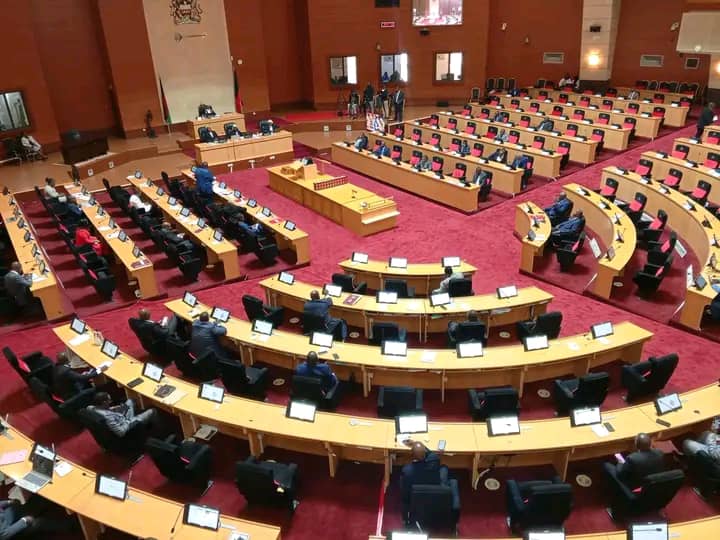By Burnett Munthali
Prominent lawyer Alexius Kamangila has taken to his Facebook page to raise concerns over the lack of progress on the Judicial Service Commission Bill in Malawi. In his post, Kamangila highlighted the Ministry of Justice’s reluctance to introduce the bill to Parliament, despite it being under discussion since 2013. He noted that the Ministry often cites a desire not to interfere with the operations of the Judiciary as the reason for the delay.
Kamangila’s post comes amid growing concerns about the transparency and accountability of the Judiciary in Malawi. While the Ministry of Justice appears hesitant to push forward legislation that could hold Judicial Officers accountable, Kamangila pointed out the apparent contradiction in the government’s actions. He observed that the same Ministry of Justice, alongside the Ministry of Finance, swiftly acts to raise the salaries of Judicial Officers—a move that takes place behind closed doors and without public discussion, even when many Malawians are struggling economically.
In his post, Kamangila questioned whether such actions threaten the independence of the Judiciary, a critical principle in ensuring justice and fairness. “Why should bringing to Parliament a legislation to hold Judicial Officers accountable be seen as a potential threat to Judicial Independence, yet the same Government increasing the salaries of Judicial Officers secretly when everyone else is suffering, isn’t seen as a threat to Judicial Independence?” he wrote.
Kamangila called for greater accountability within the Judiciary, urging Malawians to wake up to the realities of how the system is operating. Using the hashtag #Dzuka, which means “Wake Up,” he appealed to the public to demand transparency and reforms that would ensure that Judicial Officers are held accountable for their actions, without compromising the independence of the institution.
The post has sparked debate among Kamangila’s followers and the wider public, with some agreeing that there is a need for more transparency in the Judiciary, while others caution against undermining judicial independence in the process of seeking reforms.
Kamangila’s critique comes at a time when issues of judicial accountability and the balance between independence and oversight are becoming increasingly central to discussions on governance in Malawi. Whether or not this will prompt action on the Judicial Service Commission Bill remains to be seen, but the conversation is undoubtedly gaining momentum.




